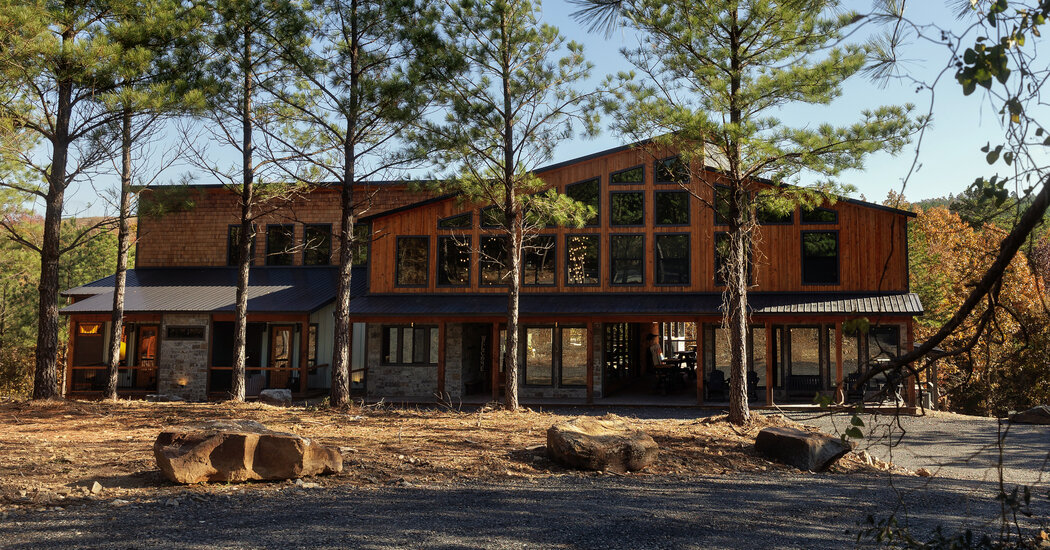The tiny town of Hochatown, on the shores of Broken Bow Lake in the southeast corner of Oklahoma, was created exactly one year ago. And it’s almost entirely thanks to Airbnb.
“Airbnb built this town 100 percent,” said Dian Jordan, the mayor of Hochatown. Last November, Ms. Jordan and 128 fellow residents successfully fought to incorporate a narrow 11-square-mile strip of bumpy dirt roads, modest log cabins and enormous modern mansions that sits within the territory of the Choctaw Nation of Oklahoma.
During the week, Hochatown has a population of just 219 people, but on weekends, as many as 50,000 visitors, mostly from Dallas, a three-hour drive away, flock there to kayak, fly-fish and hike among the waterfalls, rapids and thick forests of pine and pawpaw trees.
Before the pandemic, Hochatown had roughly 400 cabins for rent. There are now more than 2,400 — a staggering 413 percent increase in five years, according to AirDNA, a short-term rental business site that tracks Airbnb data. In September, the town collected its first month’s sales tax, totaling $456,000, and hopes to eventually reap as much as $1 million in tax revenue a month.
“For a town of a few hundred people, this number is astronomical,” said David Francis, the business registration manager at the Oklahoma Tax Commission. “The town is basically one giant Airbnb.”
At the height of the pandemic, the number of Airbnb listings in small towns and rural areas exploded, as city dwellers fled to the country. At the same time, urban areas have cracked down on short term rentals, among them New York City, which rolled out strict new rules in September about who can — and cannot — rent out their homes to short-term guests. Since its implementation, the company’s short-term listings in New York have fallen by 77 percent, according to AirDNA.
Some predicted that these regulatory changes would spell Airbnb’s death knell, and there were reports that its revenue was dropping precipitously as the waning pandemic changed travel patterns. But last week, the company posted better-than-expected third quarter results. According to the company, it added nearly 1 million active listings this year, and in the first half of 2023, Airbnb guests stayed in over 94,000 cities and towns — a record, the company said.
“The dispersal of tourism, often to places where there are no hotels, has major economic benefits,” said Jay Carney, the global head of policy and communications at Airbnb. “Areas…
Click Here to Read the Full Original Article at NYT > Travel…
